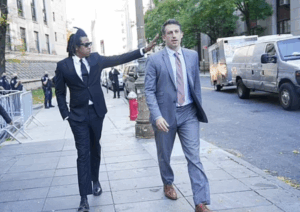Washington, DC, has seen the arrival of National Guard troops following President Trump's controversial deployment aimed at combating crime. Mayor Muriel Bowser criticizes the move as an authoritarian measure, while tensions rise amid ongoing crime concerns in the capital.
National Guard Troops Deployed in DC Amid Mayor's Criticism of Authoritarianism

National Guard Troops Deployed in DC Amid Mayor's Criticism of Authoritarianism
National Guard troops patrol Washington, DC as tensions escalate between federal and local authorities over crime control measures.
National Guard troops have arrived in Washington, DC, following President Donald Trump's controversial decision to deploy them, claiming an urgent need to address rising violent crime. This response comes just one day after the deployment order, leading to an increased federal presence with armored vehicles seen near popular tourist attractions and government buildings.
Mayor Muriel Bowser, a member of the Democratic Party, has openly rebuked the President's action, characterizing it as an "authoritarian push" against local governance. "Washington is not out of control," she maintains, rebutting Trump’s claims regarding crime rates in the city. Anticipated support from 800 National Guard soldiers and 500 additional federal law enforcement agents aims to tackle crime, yet Bowser insists that her administration is adequately managing it without federal intervention.
The federal response has often targeted Democratic-led cities, with Trump threatening similar deployments to cities like New York and Chicago. The National Guard's presence, described by Bowser as a “surge,” has resulted in barricades set up around critical infrastructure and visible troop activity among tourists on the National Mall. During a briefing, White House spokesperson Karoline Leavitt reported that 23 individuals were arrested for a variety of offenses, including homicide and gun crimes, under the federal initiative.
Amid heightened security, particularly after a recent homicide in Logan Circle, the local authorities have acknowledged the need for enhanced coordination with federal agents. Bowser recognized the shared aim of ensuring public safety but stressed the importance of municipal autonomy in her approach to crime prevention.
As public discourse continues, the mayor rallied citizens to protect the city's autonomy against what she perceives as federal overreach. This political friction further complicates the narrative on crime, which shows mixed statistics; while the Metropolitan Police report a significant drop in violent offenses, local union leaders contest these figures, accusing them of misrepresentation.
In the city where the homicide rate continues to haunt its communities, the debate over crime management intensifies, straddling the lines between federal measures and local concerns, represented poignantly by the ongoing street presence of National Guard troops.





















